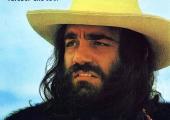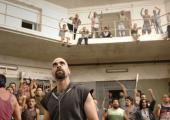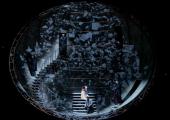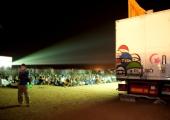More from the world's biggest and best arts festival
Jackie Leven, Cabaret Voltaire ****
Something seems to have shifted in Jackie Leven’s life. About six stone, to be precise. At the Edge Festival show the Fife-born folk-blues-soul troubadour was, almost literally, half the man he used to be: the rotund, Rabelaisian figure of old was dramatically slimmed down and sipped water rather than, as at a recent Edinburgh gig, glugged from a bottle of white wine. Perhaps it’s the side effect of a bladder infection he told us (a little too much) about, and which necessitated a “comfort break” halfway through. Or perhaps, at 61, this notoriously hard-living man is finally looking after himself.
Something seems to have shifted in Jackie Leven’s life. About six stone, to be precise. At the Edge Festival show the Fife-born folk-blues-soul troubadour was, almost literally, half the man he used to be: the rotund, Rabelaisian figure of old was dramatically slimmed down and sipped water rather than, as at a recent Edinburgh gig, glugged from a bottle of white wine. Perhaps it’s the side effect of a bladder infection he told us (a little too much) about, and which necessitated a “comfort break” halfway through. Or perhaps, at 61, this notoriously hard-living man is finally looking after himself.










